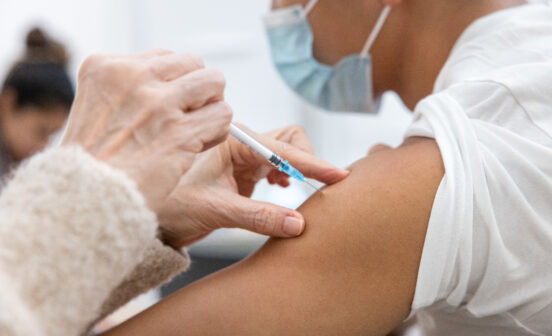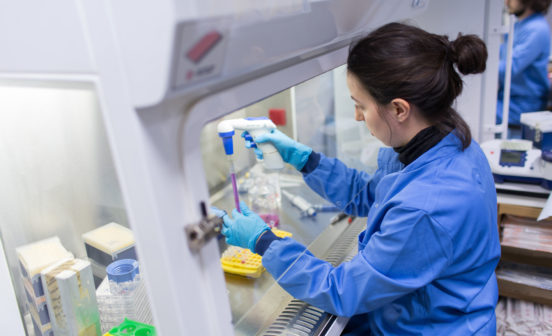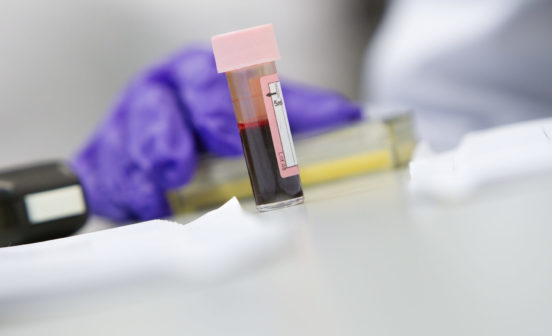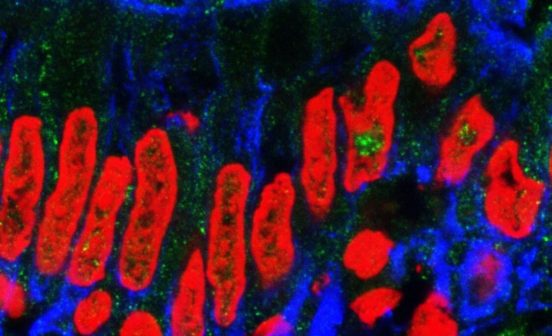PreventionTreatment New funding to investigate the development of resistance to flu

Imperial researchers will investigate how people develop resistance to the flu in an international £1.76m study backed by the Novo Nordisk Foundation.
The new project will combine human challenge and vaccine studies to investigate how our immune response in the respiratory tract responds differently to influenza infection and vaccination, which could ultimately help to improve vaccines and treatments.
The study is one of two projects funded by NNF, with teams in London and Denmark using the same methods to maximise the comparability of results.
In the Imperial-led study (called ‘GERMINATE’) researchers will focus on how immunity against influenza is generated in the nose and lung, analysing the immune response to infection alongside the immune response generated by the licensed nasal spray influenza vaccine, Fluenz.
Led by Professor Chris Chiu from the Department of Infectious Disease, who is also a key member of the NIHR Imperial Infection and AMR Theme, the work will build on Imperial’s world-leading expertise in human challenge studies – where researchers infect healthy volunteers with a pathogen under carefully controlled conditions.
In the GERMINATE study, healthy participants will be infected with the influenza virus or vaccinated and closely monitored, with their immune responses analysed in great detail to provide a level of insight not possible through typical infection.
These findings will also be directly compared with those of the Danish study (called ‘VAXXAIR’), where participants will be given either an intranasal or intramuscular vaccine against influenza.
The hope is that by directly comparing how the immune system responds to the virus and both intranasal and intramuscular vaccines, scientists will gain new insights which could ultimately help to improve treatments and vaccines against influenza.
Professor Chris Chiu, from the Department of Infectious Disease at Imperial College London, said: “Influenza remains one of the most serious health threats, claiming hundreds of thousands of lives around the world each year and a likely cause of pandemics in the foreseeable future. Yet we still don’t fully understand what aspects of our immune systems should be harnessed to develop robust immunity against the virus – information we need to improve vaccines.
“Building on Imperial’s expertise in human challenge studies and working together with our international partners, we aim for this work to offer new insights into this process. We hope that, by unlocking the unique immune processes in the nose and lung, we may ultimately help to develop better medications and vaccines to prevent not only severe disease but also infections themselves and transmission.”
Head of Infectious Diseases at the Novo Nordisk Foundation, Marianne Holm, said: “We are excited to support this important project that will provide unique insights into the fundamental workings of airway immunity, but also supply us with vital information on how best to sample and measure airway response to both viruses and vaccines. With this knowledge, we can not only improve the ways we prevent and treat influenza, but we may also become more effective in preventing and treating other respiratory pathogens.”
The clinical study is expected to begin in Spring 2025 with initial findings expected in 2026.
Imperial’s human challenge expertise
Imperial College London is a global leader in human infection challenge studies, pioneering the development of challenge models for a range of pathogens.
Imperial researchers carried out the world’s first challenge studies for SARS-CoV-2 and non-typhoidal salmonella.
Working with partners, Imperial leads the field in the development of human challenge models for a wide range of pathogens, with world-leading expertise in respiratory viruses.
By bringing together expertise in virology, immunology, and clinical trials Imperial’s work is providing a richer understanding of the fundamental biology of infection and immunology.
Ultimately, these challenge studies are a tool to accelerate the development of new vaccines and treatments and to reduce the global burden of infectious diseases.





